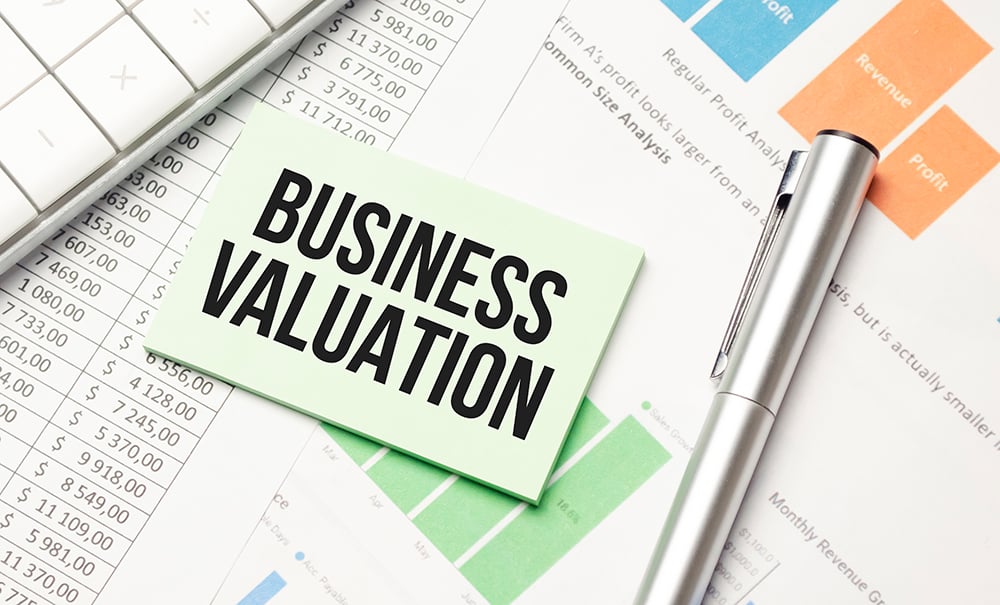Finding the best value for a private business requires a skilled combination of precision, science and artistry. It is a task important, particularly when it comes to mergers and acquisitions (M&A). Private companies are more likely to hide their financial information, unlike their publicly-traded counterparts. Due to the lack of transparency, it’s difficult to uncover the hidden value of private companies.
Accurate valuation is essential in the world of M&A. A majority of M&A deals are private company transactions, and understanding their actual value is crucial to ensure that the transaction makes sense. Understanding the value of private companies is crucial to be able to defend them in court and for tax purposes.

The difficulties of valuing private businesses
Stock markets are a good way to value publicly traded companies as they reveal information like the number of shares that are outstanding and the current price of stock. Private companies are not counted in this calculation due to a lack of financial information. Private company valuation is a challenge due to the fact that the information required for valuation is not available to the public eye.
Four ways that can be used to evaluate private businesses
In spite of these difficulties There are four standard methods for valuing private firms:
Comparable Companies Analysis: This process involves studying the financial metrics of comparable companies in the same sector to establish their value relative to the target company.
Precedent Transactions Analysis – PTA: PTA examines the selling prices of similar businesses that were involved in M&A transactions. It offers a benchmark to determine the value of the company that is being acquired.
Discounted Cashflows (DCF) also referred to as discounted cash flows is the method of discounting future cash flow in relation to their value at the moment and the determination of their intrinsic value.
Direct Valuation Assets: Using this method, the value is determined through a thorough analysis of the assets of the business, which includes intellectual properties, real estate, and equipment.
The importance of private company valuations in M&A Transactions
The valuation of private companies is essential in M&A transactions. A well-constructed valuation helps buyers and vendors to make informed decisions that align with their strategic and financial goals. Knowing the real worth of any transaction, regardless of whether it’s an acquisition, merger, or sale.
M&A is a complicated process which involves due-diligence, negotiations as well as financial aspects. Assessing privately owned companies accurately is the first step to a fair, transparent transaction. This allows both parties to negotiate with an understanding about the value of the business that builds trust and facilitates smoother transactions.
While private company valuation is critical in M&A, its importance extends to other realms, notably taxation and litigation.
Taxation: Knowing the worth of a private company is crucial for tax planning and compliance. Accurate valuation ensures that the business is taxed correctly according to its actual value and avoids potential problems in tax administration.
In litigation, valuation is essential in legal proceedings where the worth of a private company is a subject of contention. It doesn’t matter whether it’s an issue of divorce, shareholder dispute or bankruptcy case. Having a precise value is vital to arrive at an equitable settlement.
Four Valuation Techniques Common to All
Comparable Companies Analysis CCA is the process of determining comparable public companies to the private company in terms of size as well as financial and industry indicators. Analyzing the valuation multiples for the comparable companies can give an estimate of the value of a private firm.
Precedent Transactions Analysis: PTA is based on the sales prices of similar companies to yours, which have been purchased in M&A deals. By looking at the multiples that were paid for these transactions, analysts can calculate a value for the private company of interest.
Discounted Cashflows (DCFs): DCFs provide a forward-looking approach to estimating future cash flows the company will generate. The cash flows are then reduced to their current value and give an intrinsic value that considers the time value of cash.
Direct Valuation involves assigning an individual value to each asset the business owns. It could be used to value tangible assets like equipment and real estate and tangible assets such as patents and trademarks.
The valuation of a private company in business transactions is both important as well as challenging. The art and science behind this process requires an in-depth analysis of financial metrics as well as industry benchmarks and future projections. From the complexities of M&A transactions to the implications of taxation and litigation, the value attributable to a private firm shapes its present and future.
An accurate valuation is vital for business owners, investors as well as stakeholders to make informed decision-making. While the market for private company valuations shifts, businesses who understand the intricate details of valuation are better equipped to succeed in a marketplace which is always changing. Understanding the core of an organization is key to properly valuing it.